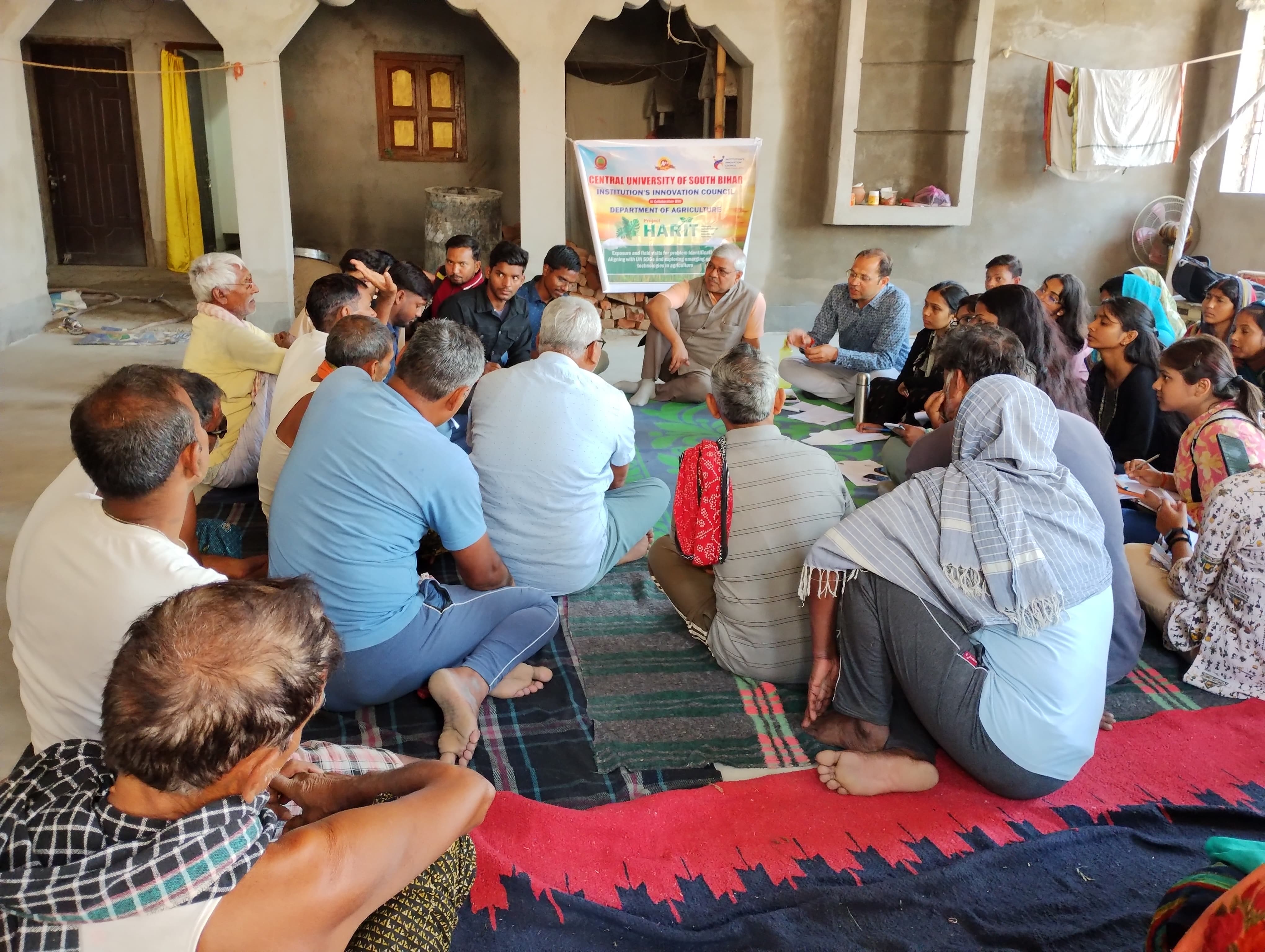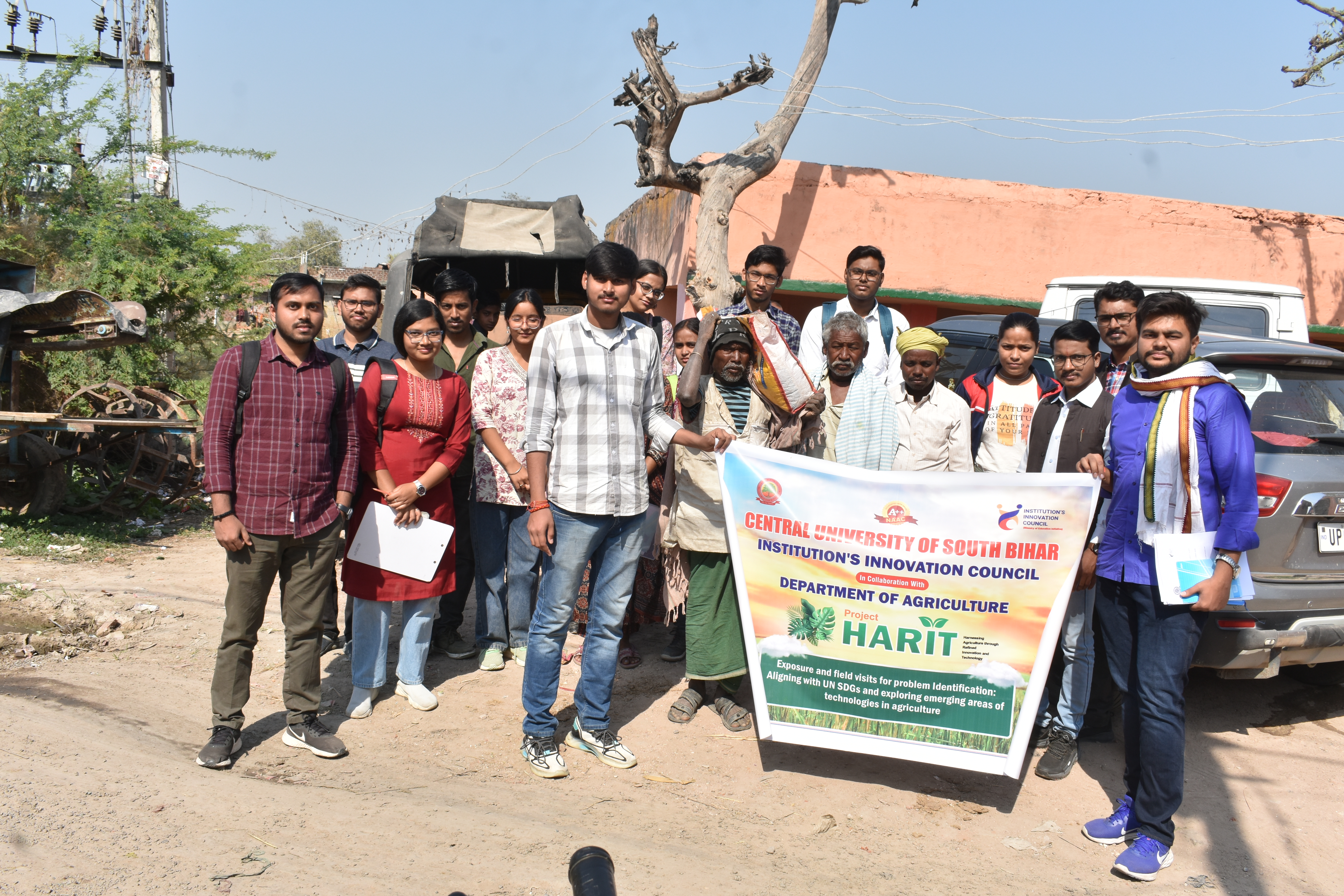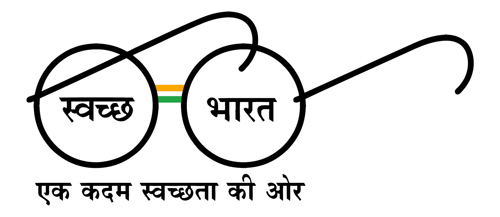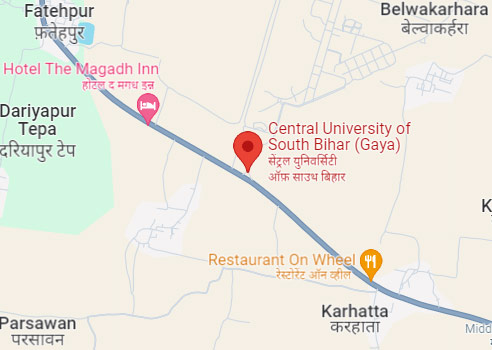Central University of South Bihar launches Project HARIT
The Institution Innovation Council, in collaboration with the Department of Agriculture, Central University of South Bihar officially inaugurated Project HARIT—an initiative aimed at addressing farmers' challenges at the village level through technological interventions aligned with Sustainable Development Goals (SDGs). The flag-off ceremony was conducted with great enthusiasm and was graced by eminent dignitaries from various academic and administrative backgrounds. The event was inaugurated by Prof. Pawan Kumar Mishra, Dean of Students' Welfare, in the presence of Prof. Venktesh Singh, President of the Institution Innovation Council, Prof. Ramashish Yadav, Dean of the School of Agriculture, Prof. Ashok Kumar, Dean of the School of Law and Governance, and *Prof. A.P. Singh, Head of the Department of Agriculture. Several esteemed faculty members, including *Dr. Surendra Kumar, Dr. Hemant Kumar Singh, Dr. Angad Kumar Singh, Dr. Pranav Tripathi, and Mrs. Renu, were also in attendance.
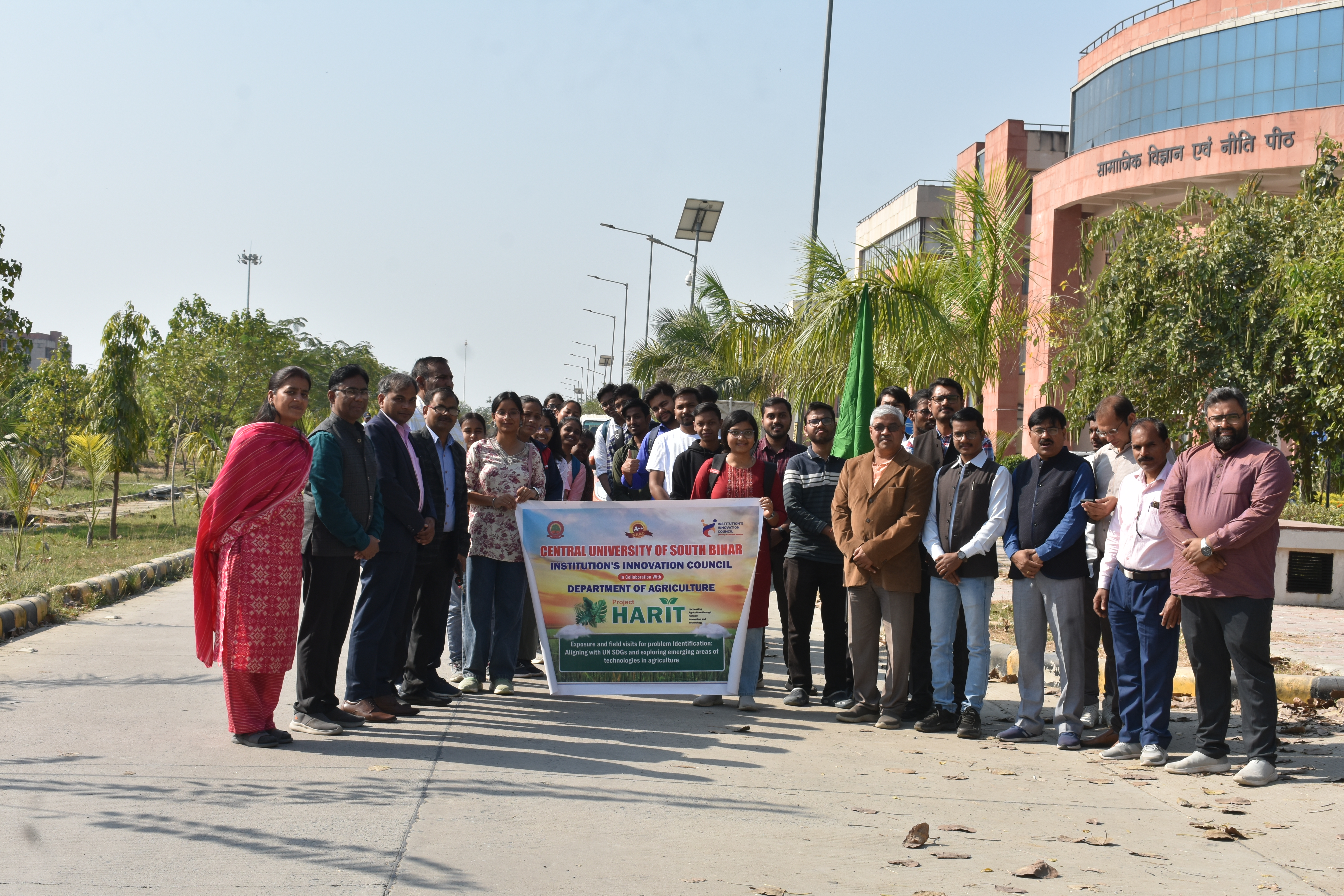
Project HARIT is designed to facilitate field visits to villages, enabling students and faculty to engage directly with farmers, identify their challenges, and develop innovative, technology-driven solutions. The project is a step forward in bridging the gap between academic research and real-world agricultural problems, ensuring practical and sustainable advancements in the sector. The first field visit under Project HARIT commenced with a survey at Dariyapur village, where students interacted with local farmers to understand their issues. The survey aimed at gathering first-hand information that would serve as the foundation for future interventions by the institution. The visit was successfully coordinated by Dr. Pawas Kumar and Dr. Sudarshan Behara, with active participation from students Ashish, Abhishek, Priyanshu Shah, and Pallavi. The inauguration of Project HARIT marks a significant milestone in the institution’s commitment to community engagement and sustainable agricultural development. By integrating technology and innovation into rural problem-solving, the initiative is expected to create a meaningful impact in the lives of farmers while contributing to national and global sustainability goals.
--------------------------
Day 2:-
Analysis of farmers' problems at Tepa village on the second day of Project HARIT
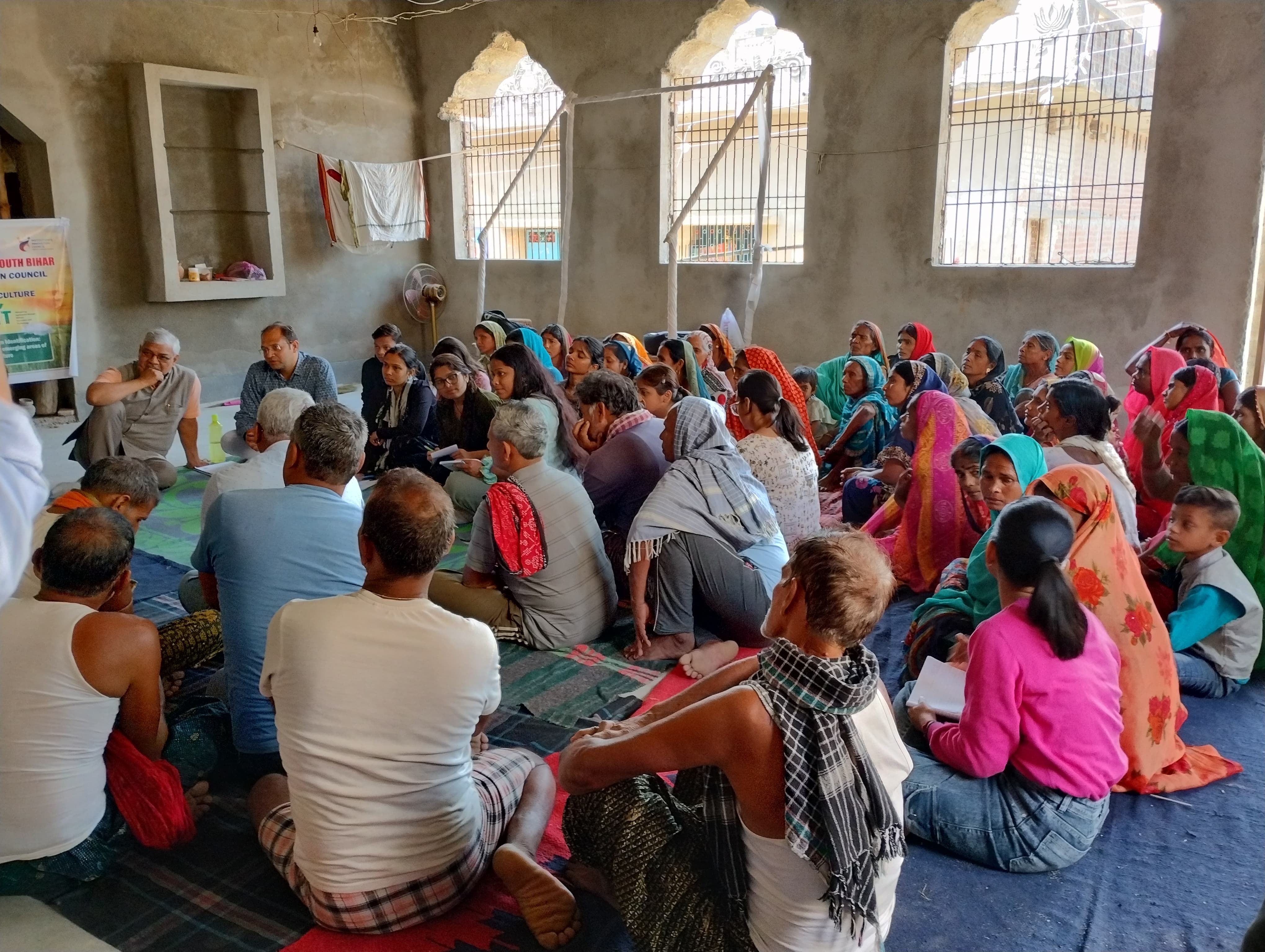
On the second day of Project HARIT, a team of students and teachers visited Tepa village, which is located near the university. The main objective of this visit was to do an in-depth analysis of the problems of the villagers and develop technological solutions for them. The students interacted with the farmers of the village and identified their problems such as agricultural difficulties, water management, crop protection, and market linkages.
The program was coordinated by Prof. Venkatesh Singh and Dr. Hemant Kumar Singh, while the responsibility of student coordination was taken by Abhishek Chandan, Shashank Mishra, Pallavi, and Vaishnavi. The students interacted in-depth with the villagers and tried to understand their problems and collected the necessary data to find effective solutions to these problems. During this visit, the ward member of the village Mrs. Renu Devi and villagers keenly interacted with CUSB team.
